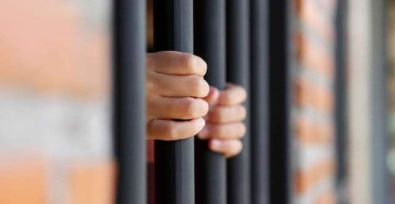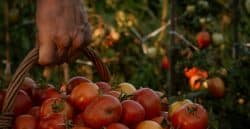In 2023, modern slavery in the U.K. was reported at a record high. Now, according to advocacy groups, survivors are slipping through the cracks – in U.K. prisons. Instead of being connected with support systems, survivors are put in prison for crimes they were forced to commit according to the Geographical.
Worse yet, since these survivors are not being identified and given help while in prison, many are picked up when released and sometimes re-trafficked by the same people who landed them jailed in the first place.
More survivors in UK prisons than perpetrators
Modern slavery in the U.K. has been documented in construction, agriculture and the care industry. However, as reported by the Independant, the most common form of modern slavery is criminal exploitation, which means victims are forced to work as drug dealers or to tend to cannabis farms.
Due to insufficient training and preconceived ideas, police are failing to identify workers as modern slavery victims during their cannabis farm raids. Instead, they are arrested as criminals and sentenced to jail time while their traffickers often remain free.
Victoria Tecca, from the Modern Slavery and Human Rights Policy and Evidence Centre says:
“The harsh reality of modern slavery today (is) that thousands of people are trapped in situations they can’t get out of, exploited in harsh conditions, facing threats, violence and intimidation.”
Advocate and human rights lawyer, Marija Jovanovic, interviewed prison staff and experts as well as survivors and found that no one knows how many victims of modern slavery are currently serving sentences in the U.K. These findings suggest that the problem is likely much larger than previously estimated. Prison staff were only issued with guidance on how to identify and support victims of modern slavery in 2022. In Jovanovic’s opinion, these facts combined with the low conviction rate for modern slavery charges point to the likelihood that there could very well be more survivors in UK prisons than perpetrators.
Modern slavery reported against women and children at an all-time high
Last year saw record numbers of potential victims of modern slavery referred to the system, some 17,004, with referrals for both women and children at all-time highs. That number is the highest since the beginning of the National Referral Mechanism (NRM) back in 2009. Survivors cannot access support or be recognized as modern slavery survivors until they are referred and assessed by the NRM. However, people in prison may not trust the system enough to ask for a referral. That means survivors, including women and children, who are arrested and don’t receive a referral are treated as criminals while their traffickers remain at large. And contrary to the widely held view that this is mostly an immigrant issue, recent stats found it is U.K. nationals who are most commonly reported through NRM referrals.
Jovanovic believes,
“It’s very important that victims are identified and supported because, if they’re not, the cycle of exploitation continues. We have heard of instances where people released from prison are being collected by traffickers and exploiters.”
In addition, only designated ‘first responder organizations’ can refer suspected cases of modern slavery to the NRM. These organizations include the Home Office, police and some charities, but it does not include prisons.
So, for a survivor arrested and sent to prison, it is highly unlikely they will be identified as a possible victim of modern slavery and get a referral. The Home Affairs Committee recently appointed a new Independent Anti-Slavery Commissioner, Eleanor Lyons, who acknowledges more needs to be done, not just to prevent vulnerable people from being exploited, but to capture the real criminals and bring them to justice. It is “particularly troubling” said Lyons, to see record numbers of children in the recent statistics and the fact UK nationals were the most prevalent group reported was “stark reminder that modern slavery can affect people from any country.”
Survivors need support, not jail time
The current situation in the U.K. means that survivors are not only being denied the support they need to recover but are also having their freedom stripped away a second time by the U.K. prison system.
The U.K. government has thus far refused to issue a ban on the detention of all trafficking survivors and has ignored recommendations from the U.N. Special Rapporteur on trafficking to “[ensure] that trafficked persons are not, in any circumstances, held in immigration detention or other forms of custody”.
Help us dial up the pressure on the government of the U.K. government and demand they stand by their stated commitments to tackle modern slavery and support survivors. If you haven’t already, sign the petition and add your voice to the call to stop detaining trafficking survivors and to release all potential and confirmed survivors from detention.








Freedom United is interested in hearing from our community and welcomes relevant, informed comments, advice, and insights that advance the conversation around our campaigns and advocacy. We value inclusivity and respect within our community. To be approved, your comments should be civil.